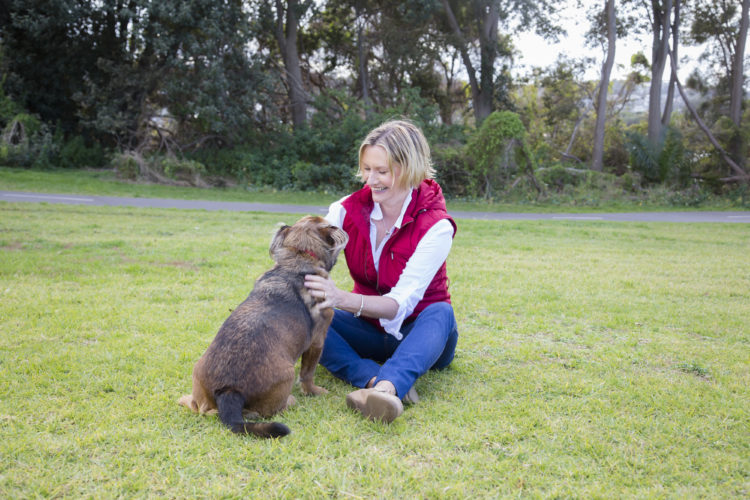Do you talk to your pet? You are not alone…
Talk to the Animals. We all do it. Don’t we?

Perhaps you don’t want to admit it! If you do indulge in a chat with your cat or a dialogue with your dog, you are not alone. Most pet owners enjoy conversations with their furry friends, even if they are a little one-sided. This is not the first sign of madness but indicates a healthy, fun relationship.
Why we talk to our pets
Most humans enjoy companionship and our pets offer this unconditionally. They don’t care if we chit-chat, gossip, sing off-key or whisper lullabies. They accept us for who we are. A few are not so keen on us shouting, however, especially if we are angry!
It is human nature to chat to our children and grandchildren and research shows that we chat in a similar type of language to our pets. This is known as motherese, occasionally called ‘baby talk’ and is a light, happy, conversational tone. Speech in this format usually engages our pets, our dogs especially, and you will often see them cock their heads, listening intently to our every word. There is probably no human listener who is as intent on listening to our conversation.
Dogs seem to understand every word
Several studies have measured the extent to which dogs can understand humans and it seems that the brightest and most engaged pooches can learn up to 200 words. The average pet dog may know up to 10 words, including walk, dinner, sit, bed and so on.
Dogs can even understand when we point at an object. Try it with your dog. You may even be able to point and ask your dog to fetch, provided they have previously been taught a retrieve command. Very few other animals have the ability to understand our pointing gestures.
It makes sense that dogs should comprehend our language, since they have lived alongside us for at least 20,000 years, perhaps a lot longer. In this time our language has evolved considerably and dogs have been there every step of the way. Plus dogs are masters at knowing our routines and reading our body language, so the ability to correlate our language with our activity patterns should not be difficult for our pampered pooches.
Their level of ability to understand you does require your dog spending time with you, however, so if your dog is restricted to your backyard, you will probably find him less inclined to listen and understand your dulcet tones.
Dogs also have the uncanny ability of appearing to empathise with our feelings. When we are excited, they are excited. When we feel low, they sit quietly beside us or gently nudge us to cheer us up. This makes us feel understood.
Do cats simply ignore us?
Cats are experts at giving the impression they are ignoring us. The majority of our feline friends don’t rush to the door to greet us or trot around the house after us, hanging on to our every word. They do, however, acknowledge our presence, albeit in a very subtle manner.
Researchers at the University of Japan observed the behaviour of cats when owners spoke to their cats and when strangers interacted. When cats heard voices they oriented their heads towards the sound. Often their ears were the only thing that moved. Given that cats have 32 muscles in each ear, a flick of the ear is all it takes to tune in to the human voice. Cats responded more clearly towards their owners than they did towards strangers. Comfort for cat owners to know they are not being ignored!
Cats use their own language to engage their owners. With a half meow, half purr, known as a ‘solicitation purr’, they chirrup to get our attention or to be fed. We can use this opportunity to chat back to our cats. Meow in return and give a slow blink or wink at the same time, to have your cat hooked on your affection.

The strong, silent types
If you’re not such a talkative person, you really don’t want to talk to your pet or your pet simple enjoy a cuddle in silence, don’t worry. Simply spending some quality time together enhances affection between humans and pets. Oxytocin, the love hormone, is released when we spend time together and this results in trust and relaxation in both humans and pets.
So give your pet a pat, spend some time together and have an occasional chat. You’ll enjoy it and so will your pet.
Do you talk to your pet? Let us know in the comments below…
This article, written by Dr Jo Righetti, was first published at Starts at Sixty.
More activities with pets
- Enrichment Stuffing: A Beginner’s Guide to Stuffing Dog Toys
- 9 Surprising Things you May Learn About Your Pets While in Social Isolation
- Coronavirus Isolation With Pets: 7 Healthy/ Indulgent Activities to Do Together
- You Moved To Sydney But Your Pet Didn’t. Now What?
- Socialisation versus Anxiety in Dogs
- The Benefits of Doggy Daycare for Socialisation
- The Quarter Horse: Understand this breed
- Pets Now Becoming Most Important Wedding Guest
- How to choose the right lead for your dog
- America’s Top 10 Dog-Friendly Destinations
Quotes about pets at Pinterest







2 comments
Comments are closed.